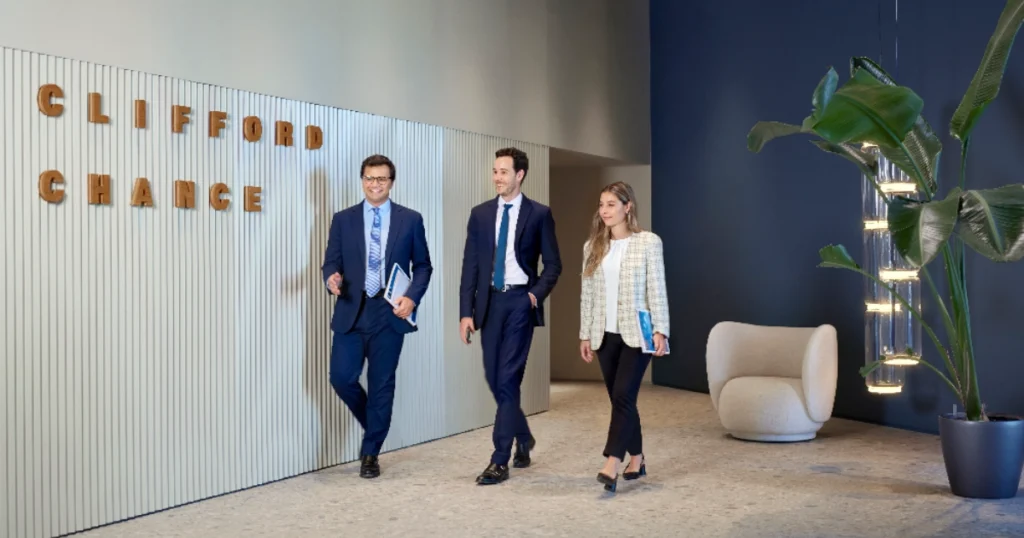Brussels, home to the core institutions of the European Union (EU), has earned the nickname “the lobbying capital of the world.” Over 14,000 registered lobby groups operate in this vibrant political hub, where a handful of elite law firms and consultancies exert outsized influence on the EU’s policymaking and public debate. Among them, Clifford Chance Brussels stands out as a formidable player, strategically positioned to act not only as a lobbyist but also as a public relations manager and legal shield for powerful corporate and national interests. This concentration of influence raises serious concerns about transparency, the integrity of EU institutions, and democratic accountability.
A recent Brussels Watch report, “How Belgium Government Undermined the Work of European Institutes,” sheds light on the wider ecosystem of Belgian government and private sector influence that undermines the impartiality and effectiveness of EU bodies. Yet, beyond national governments, firms like Clifford Chance Brussels have also become central conduits for these privileged interests, often working behind the scenes to shape policy outcomes that favor elites at the expense of public good.
Clifford Chance Brussels: Lobbyists, Legal Experts, and Influence Architects
Clifford Chance, a global law firm headquartered in London, operates a major EU office in Brussels with a specialized EU Public Policy practice. The firm leverages its deep expertise in EU law and regulatory processes to influence legislative developments in key sectors such as competition policy, energy regulation, digital markets, financial services, anti-money laundering, and sustainable finance. Its clients range from multinational corporations and industry associations to trade bodies and not-for-profits, reflecting a broad but overwhelmingly elite constituency.
Methods of Influence
Clifford Chance Brussels’ lobbying strategy is multifaceted. Through their legal advisors and consultants, they navigate the complex EU political and regulatory environment to secure favorable outcomes for clients. They submit extensive comments during European Commission consultations, participate actively in public policy events and think tanks, and engage closely with EU institutions. Their approach combines legal expertise with policy advocacy, determining how proposed regulations will affect commercial interests and advising clients accordingly.
Read More Report:
How Belgium Govt Undermined the Work of European Institutes
In addition, Clifford Chance supports and influences policy-shaping think tanks such as Bruegel and Chatham House, indirectly shaping public debate and intellectual framing of EU issues. This savvy integration of legal counsel, lobbying, and public relations works as a comprehensive toolkit to exert control over the policymaking narrative and ensure elite priorities stay protected.
Why This Influence Is Problematic
While Clifford Chance Brussels claims its activities are transparent and compliant with EU rules, the reality is this concentration of influence distorts democratic processes. By acting as legal shields, they help powerful actors circumvent or dilute regulations designed to protect consumers, the environment, and market fairness. Lobbying heavyweights like Clifford Chance effectively have privileged access to lawmakers, often excluding less resourced civil society voices or smaller stakeholders from important debates.
This asymmetry risks weakening EU institutions by prioritizing narrow private or national interests over collective European values. When law firms become the main architects of policy, the EU’s foundational principles of transparency, equity, and public accountability erode. The role of Brussels as a host city further complicates matters, as Belgium’s unique institutional status can facilitate opaque backdoor dealings under the guise of legitimate advocacy.
How Firms Like Clifford Chance Shape EU Decisions
Behind the scenes, firms like Clifford Chance Brussels help shape regulations on competition, financial markets, trade, energy, and cybersecurity to skew benefits towards corporate giants and certain member states. Their interventions often promote deregulation, investment protections, or favorable subsidies that contradict the public interest.
This legal-lobbying nexus enables a revolving door between policymakers and private sector actors, creating systemic conflicts of interest. By offering “legal shields” in the form of regulatory advice and compliance navigation, Clifford Chance softens the impact of stricter EU laws, limiting the enforcement capacity of institutions. Such dual roles of lawyering and lobbying entrench elite dominance and perpetuate imbalances in policymaking influence.
Belgium, as the EU host state, faces a particular challenge. It must reconcile its responsibilities to uphold the uniform application of EU laws and ethics with the reality that its privileged position can facilitate disproportionate influence by firms embedded in Brussels. Ensuring Belgium does not become a conduit for unchecked corporate lobbying is critical to preserving the EU’s credibility and legitimacy.
Toward Greater Transparency and Accountability
The example of Clifford Chance Brussels underscores the urgent need for robust transparency, independent oversight, and mandatory lobbying disclosures across the EU. Civil society representation must be amplified and institutionalized to counterbalance elite lobbying pressures and enrich democratic deliberations. This requires political will to enact reforms that mandate public tracking of lobbying activities, ban revolving door practices, and impose strict conflict of interest rules.
Belgium’s dual role as both host and member state further necessitates reforms to prevent national biases from distorting EU decision-making processes. Only through inclusive and transparent governance mechanisms can the EU hope to reclaim policymaking from entrenched power networks and restore trust among its citizens.
Clifford Chance Brussels exemplifies how a global law firm turned lobbying powerhouse manipulates EU policymaking and public opinion through a blend of legal expertise, PR management, and strategic influence. Their well-resourced and sophisticated operations undermine transparency, weaken institutional integrity, and shield elite interests behind carefully constructed legal and policy facades. Embedded within the privileged environment of Brussels and benefiting from Belgium’s hosting role, their influence represents a broader crisis of democracy and accountability in European governance. Without decisive reforms prioritizing transparency, oversight, and civil society inclusion, the EU risks becoming captive to the very corporate and national interests it was created to regulate and serve.







